26 January 2019
Touch of Evil
22 January 2019
More or Less
On closer inspection, the ballot papers are a parody of recent Thai political factions, and a Thai flag backdrop is overlaid with army camouflage to indicate the military's pervasive influence over the country. Also, the ballot box has no bottom, so ballot papers fall straight onto the floor, symbolising the futility of elections that are often invalidated (as in 2006 and 2014) or postponed. According to the junta, a return to democracy is always on the horizon, and elections are perpetually due 'next year'. In the meantime, gallery visitors can vote via Januário's ballot papers.
A month after the coup, on 28th June 2014, Prayut Chan-o-cha promised an election by October 2015. On 9th February 2015, he committed to an election by February 2016. On 9th August 2016, he announced that an election would take place by November 2017. On 10th October 2017, he gave assurances that an election would happen by November 2018. On 27th February 2018, he pledged an election by February 2019, though another delay seems inevitable.
صح النوم
A presenter on an Egyptian satellite television station has been jailed for a year, after being found guilty of inciting immorality. Mohamed al-Ghiety's talk show, صح النوم, featured a gay man discussing his sex life in an episode transmitted on 5th August last year. (The man's face was blurred to disguise his identity.) The broadcaster, LTC TV, was suspended for a fortnight after the programme was aired.
20 January 2019
Monstrous Phenomenon
A four-leaf clover is considered lucky, though five-leaf ones certainly aren't: they are genetic mutations caused by nuclear radiation. The exhibition features these and other plant and animal specimens from contaminated sites in Fukushima prefecture, including a bee from Minamisoma and a bovine lumbar vertebra from Namie.
Monstrous Phenomenon runs until 19th March at 1Projects. Ruangsak's sculpture 'Transformations' was included in ห้องเรียนวาฬไทย at HOF Art Space, and his 'Ash Heart Project' installation was part of the Dialogues exhibition at BACC.
18 January 2019
McJesus
Last week, the gallery was firebombed, and police fired tear gas at hundreds of demonstrators who accused the artist of blasphemy. The exhibition, Sacred Goods, is due to close on 17th February.
Jake and Dinos Chapman caused controversy with a similar sculpture in 2012. Their Unholy McTrinity, which also featured a crucified Ronald McDonald, was shown at the Hermitage in Russia.
15 January 2019
After the Coup
The political affiliations of Thais from the middle class, the south, the north, and the northeast are examined in four chapters. Middle-class and southern interviewees discuss their reasons for joining the PAD and PDRC, notably their devotion to Rama IX and their anger at Thaksin Shinawatra's "alleged disloyalty to King Bhumibol. Most interviewees cited this issue as a decisive factor in turning them against Thaksin." The book also confirms a widespread and patronising sense of middle-class superiority: "All interviewees stressed a lack of education among Thaksin's supporters as evidence that elections in Thailand lack legitimacy; the uneducated simply succumb to vote buying."
In contrast, two chapters on the north and northeast focus on the red-shirt movement and the UDD, asking two pertinent questions: "Why was there so little resistance to the coup? Why were there so few Red Shirt protests in the twelve months following the coup?" The junta's intimidation tactics provide the answer: red-shirts are closely monitored and coerced into renouncing all political activity, including one interviewee who "had to promise not to wear a red shirt, or even a checked shirt containing red in the pattern."
Other chapters have a broader focus. Prajak Kongkirati expands his earlier essay on the 2014 election (in Military, Monarchy and Repression) to analyse forty years of election-related violence. Surachart Bamrungsuk provides a potted history of Thai coups, demonstrating that, for the military, practice makes perfect: "The absence of external security challenges has left the army free to involve itself in political affairs and to become more skilled in political manipulation." Thongchai Winichakul (updating his essay in "Good Coup" Gone Bad) examines the prospects for royalist hegemony following the succession.
There are two especially interesting chapters on mass media and politics. Aim Sinpeng and Wimonsiri Hemtanon highlight the 'filter bubble' effect caused by Thailand's partisan media, though their essay includes an unfortunate instance of self-censorship. They discuss a 1995 Thai Rath (ไทยรัฐ) corruption exposé "involving a high-profile member of the prime minister's Democrat Party" without naming the politician involved. (Duncan McCargo previously identified Suthep Thaugsuban as "the figure at the centre of the scandal" in his book Politics and the Press in Thailand.)
Puangthong Pawakapan surveys international media coverage of the monarchy since the 1960s, noting how critical reporting has increased since the 2006 coup: "The foreign press was instrumental in constructing a benign image of King Bhumibol in the international arena, and was thus complicit in entrenching the power of the monarchy. However, the political coverage of Thailand changed after 2006. The foreign press began to see the monarchy... as a crucial factor in the conflict that now engulfed Thailand."
11 January 2019
100 Ideas that Changed Design
Like the other books in the series, 100 Ideas that Changed Design features 100 chapters, each with a single-page essay and a few well-chosen illustrations. There is also a wide-ranging bibliography.
The selected design ideas include broad concepts (such as style and taste), elements of the production process (such as mass production and quality control), practical considerations (such as ergonomics and safety), design philosophies (such as functionalism and design art), and well-known aphorisms (such as form follows function and less is more). Aesthetic trends and other stylistic 'isms' are excluded.
Charlotte and Peter Fiell are experts on product and furniture design. Their other books include The Story of Design, Plastic Dreams, Design of the 20th Century, A-Z of Design and Designers, Modern Furniture Classics, and Industrial Design A-Z.
Isan Creative Festival 2019
Apichatpong grew up in Khon Kaen, and his most recent feature, Cemetery of Splendour, was filmed in the city. (It's Thai title, รักที่ขอนแก่น, translates as 'Love in Khon Kaen'.) Song of the City, his segment of the portmanteau film Ten Years Thailand, was also filmed in Khon Kaen.
Still in his twenties, Surasak is already one of the most important figures in the Isaan film industry, thanks to the commercial success of his Thibaan comedies. His latest film, Thibaan: The Series 2.2 (ไทบ้านเดอะซีรีส์ 2.2), hit the headlines after shots of a crying monk were censored. It was shown at a free open-air screening last night, along with Ten Years Thailand, on Isan Creative Festival's opening night.
10 January 2019
Apichatpong Weerasethakul
09 January 2019
Khonkaen Manifesto:
Flashy Flashes No. 1
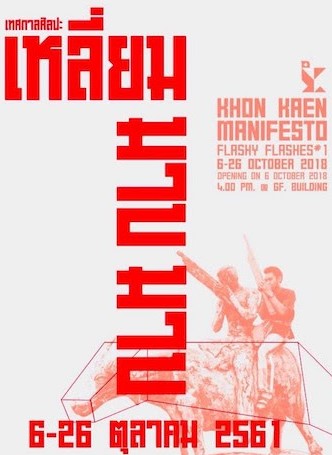
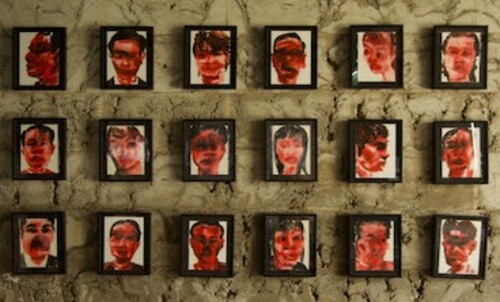
Khonkaen Manifesto (ขอนแก่น แมนิเฟสโต้), an exhibition of political art, opened on 6th October last year. 6th October is, of course, infamous in Thailand, as a massacre took place at Thammasat University on 6th October 1976.
One of the installations in the exhibition, Nutdanai Jitbunjong’s A Massacre, referred directly to that event: it consisted of a folding chair hanging from a noose, in reference to Neal Ulevich’s photograph of a corpse being battered with a folding chair. Visitors to the exhibition were greeted by two girl scouts, an allusion to the Village Scouts militia group that took part in the massacre. (Ten Years Thailand also features children in scout uniforms, another reference to the Village Scout vigilantes.)
Other works in the exhibition also made reference to instances of state violence. Zakariya Amataya’s installation Report from a Partitioned Village (รายงานจากหมู่บ้านที่ถูกปิดล้อม) included a list of victims of the 2004 Tak Bai massacre. For his Red Faces series, Tawan Wattuya painted portraits of eighteen people killed on 10th April 2010, with red watercolour symbolising the blood of the victims.
Naturally, such politically sensitive subjects drew the attention of the military, and junta officials made regular visits to the exhibition in the days before and after it opened. As a result of this intimidation, a portrait of lèse-majesté convict Jatupat Boonpattararaksa was removed. (The painting, by Sermsilp Pairin, was part of a triptych, the others being portraits of politician Pridi Banomyong and writer Chit Phumisak.)
One of the installations in the exhibition, Nutdanai Jitbunjong’s A Massacre, referred directly to that event: it consisted of a folding chair hanging from a noose, in reference to Neal Ulevich’s photograph of a corpse being battered with a folding chair. Visitors to the exhibition were greeted by two girl scouts, an allusion to the Village Scouts militia group that took part in the massacre. (Ten Years Thailand also features children in scout uniforms, another reference to the Village Scout vigilantes.)
Other works in the exhibition also made reference to instances of state violence. Zakariya Amataya’s installation Report from a Partitioned Village (รายงานจากหมู่บ้านที่ถูกปิดล้อม) included a list of victims of the 2004 Tak Bai massacre. For his Red Faces series, Tawan Wattuya painted portraits of eighteen people killed on 10th April 2010, with red watercolour symbolising the blood of the victims.
Naturally, such politically sensitive subjects drew the attention of the military, and junta officials made regular visits to the exhibition in the days before and after it opened. As a result of this intimidation, a portrait of lèse-majesté convict Jatupat Boonpattararaksa was removed. (The painting, by Sermsilp Pairin, was part of a triptych, the others being portraits of politician Pridi Banomyong and writer Chit Phumisak.)
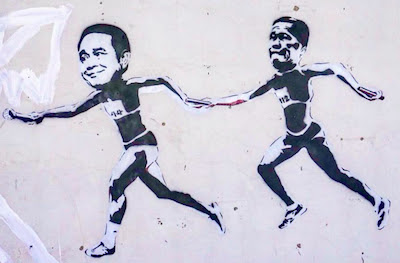
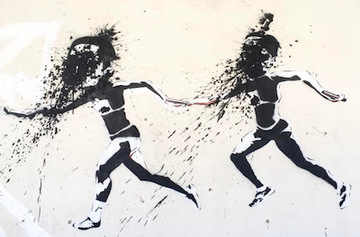
Some of the exhibition’s remaining works were self-censored. For example, Junta Connection (‘วิ่งผลัดเผด็จการ’), a mural by the Guerrilla Boys, originally depicted Sarit Thanarat passing his (literal) baton of dictatorship to Prayut Chan-o-cha, though the work was later modified to obscure their faces.
Khonkaen Manifesto ran from 6th to 26th October 2018 at the GF Building in Khon Kaen. (The theme for this inaugural event was Flashy Flashes No. 1.) Previous exhibitions in Thailand have also been censored for political reasons: photographs were removed from Rupture (หมายเหตุ ๕/๒๕๕๓) in 2010 and Whitewash (ไร้มลทิน) in 2017.
Khonkaen Manifesto ran from 6th to 26th October 2018 at the GF Building in Khon Kaen. (The theme for this inaugural event was Flashy Flashes No. 1.) Previous exhibitions in Thailand have also been censored for political reasons: photographs were removed from Rupture (หมายเหตุ ๕/๒๕๕๓) in 2010 and Whitewash (ไร้มลทิน) in 2017.
06 January 2019
2562++
The installation is on show at the former offices of the East Asiatic Company, a colonial building now in a state of disrepair. It opened on 19th October last year, as part of the inaugural Bangkok Art Biennale (บางกอก อาร์ต เบียนนาเล่), and runs until 3rd February.
2019:
The Future
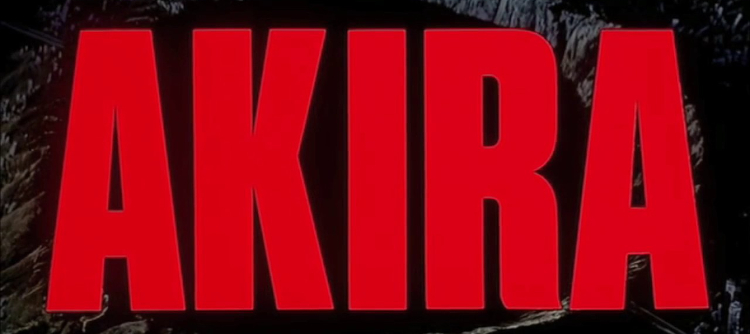
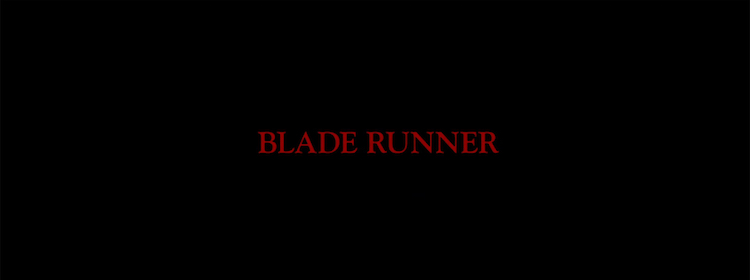
2019: The Future is the theme for this month’s Jam Ciné Club, at Bangkok’s Jam Café, with screenings of dystopian science-fiction films set in a futuristic 2019. The season’s highlights are Katsuhiro Otomo’s Akira (アキラ) on 16th January and Ridley Scott’s Blade Runner on 30th January.
03 January 2019
Thai Film Archive
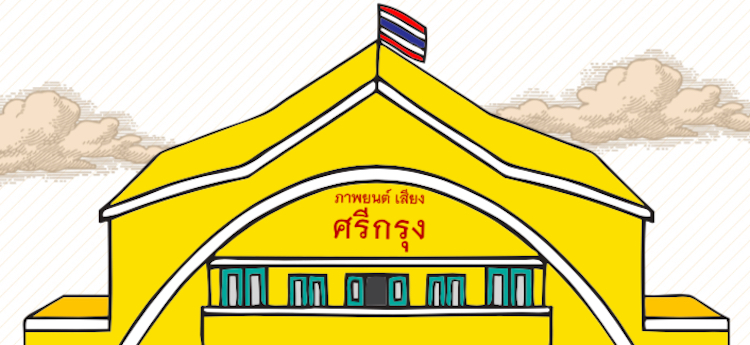
The Thai Film Archive at Salaya will be screening several films by Apichatpong Weerasethakul this month, to celebrate his recent FIAF Award. Uncle Boonmee Who Can Recall His Past Lives (ลุงบุญมีระลึกชาติ) will be screened on 5th January, Syndromes and a Century (แสงศตวรรษ) on 20th January, and Blissfully Yours (สุดเสน่หา) on 27th January. (Blissfully Yours will be shown in 35mm.) Next month’s highlights at the Archive include Pen-ek Ratanaruang’s documentary Paradoxocracy (ประชาธิป'ไทย) on 23rd February, and the portmanteau film Ten Years Thailand on 24th February.
GoodFellas
02 January 2019
The 12 Most Influential
Movies of All Time
Even accounting for the young target audience, three Disney titles (Snow White, Toy Story, and Frozen) - a quarter of the entire list - seems excessive. Also, there are no foreign-language entries. An appendix lists five additional films: Titanic (the James Cameron version), the Lord of the Rings trilogy, Avatar, and two more Disney titles (Who Framed Roger Rabbit and The Little Mermaid). The bibliography has just two entries: 1001 Movies You Must See Before You Die and (surprise, surprise) a Disney book.
Again, this is a children's book, so we shouldn't expect a scholarly tome, though there are plenty of factual errors. The Great Train Robbery has fourteen scenes, not "14 separate shots." Snow White was not "the first full-length animated movie." The Wizard of Oz's prologue is sepia, not "black-and-white film." Citizen Kane is not a "movie with no special effects". Three prop sharks, not one, were used in the making of Jaws. The book's glossary also contains some mistakes: confusingly, it defines a 'shot' as "frames in a movie" and 'footage' as "a specific section of a movie's film."
The twelve influential movies are as follows:
- The Great Train Robbery
- King Kong
- Snow White and the Seven Dwarfs
- Gone with the Wind
- The Wizard of Oz
- Citizen Kane
- Singin' in the Rain
- Jaws
- Star Wars
- Jurassic Park
- Frozen
28 December 2018
Military, Monarchy and Repression
Chris Baker (author of an excellent Thaksin Shinawatra biography) analyses the causes of the coup, from short-term PDRC demonstrations ("almost six months of constant protest which created the context for the coup") to long-term social trends and traditional power structures. He also argues that the current junta is more repressive than many previous coups ("this was clearly a military government of a kind not seen in over 40 years"), though he is optimistic about the country's political future: "The present generation of the Bangkok middle class, who grew up against the backdrop of the Cold War and the ninth reign, will be replaced by another which grew up in Bangkok as a globalised city."
Other contributors are more pessimistic. Paul Chambers and Napisa Waitoolkiat (editors of Khaki Capital) believe that the military-dominated status quo will continue: "Perhaps only another 1992 military massacre of civilians will sufficiently taint the image of the armed forces to the extent that civilians cohere against them, monarchical support for the military diminishes, and soldiers return to the barracks. More likely, for the foreseeable future, military officers will continue to play a prominent role in Thailand, guaranteeing the resilience of monarchised military". Similarly, Prajak Kongkirati concludes that the 2014 election (later invalidated) and the ensuing coup "plunged Thailand into a state of uncertainty and (potentially violent) instability, possibly for years to come."
Eugénie Mérieau highlights the Constitutional Court's "effective usurpation of sovereign power". (The Court has disqualified four prime ministers from office: Thaksin Shinawatra, Samak Sundaravej, Somchai Wongsawat, and Yingluck Shinawatra.) Mérieau's argument is persuasive, though she refers to the politicised judiciary as a "Deep State", a term more often used by conspiracy theorists. Likewise, Chris Baker refers to an "Illuminati" of influential anti-democratic figures: again, the thesis is reasonable, though the terminology implies paranoia. Paul Chambers and Napisa Waitoolkiat's term "parallel state" is a less problematic description for the pervasive influence of unelected institutions on Thailand's nascent democracy.
Censored!
Stage, Screen, Society at 50
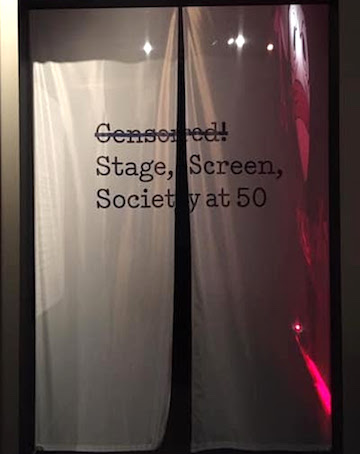
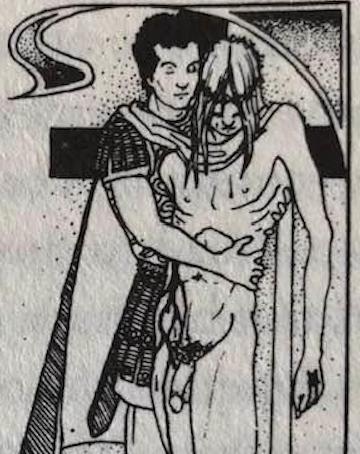
Theatre censorship in the UK was abolished fifty years ago, and London’s Victoria and Albert Museum is marking the anniversary with Censored! Stage, Screen, Society at 50, an exhibition devoted to UK censorship. The exhibition covers theatre, film, music, and media censorship, with exhibits including the 3rd June 1976 issue of Gay News (no. 96, containing James Kirkup’s poem The Love That Dares to Speak Its Name about a Roman centurion’s sex with Christ after the crucifiction) and the ‘School Kids’ issue of Oz (no. 28, which was the subject of a long-running obscenity trial in 1971). Censored! opened on 10th July, and runs until 27th January next year.
Denis Lemon, editor of Gay News, was convicted of blasphemous libel in 1977, following a private prosecution instigated by Mary Whitehouse. A handful of socialist magazines—Anarchist Worker (no. 33, February 1977), Peace News (28th January 1977), Liberator (January 1977), and Freedom (23rd July 1977)—reprinted Kirkup’s poem in solidarity. It was also included as a single-page insert in the 14th July 1977 issue of Socialist Challenge (no. 6), as the magazine’s printers “would not print the poem in question.” The socialist journal Gay Left (no. 5, Winter 1977) published extracts from the poem, along with an ambivalent analysis: “It is a rather silly poem. It is at times an amusing poem. It is from start to finish an extremely “literary” poem.” Inoffensive extracts also appeared in The Observer (on 17th July 1977), which coyly explained that “the centurion kissed Christ’s body.”
Geoffrey Robertson was a defence barrister in the 1977 trial, and his memoir The Justice Game includes lengthy extracts from the poem, including one stanza “which the judge suggested was so profane not even I would read it aloud”. Reflecting on this, Robertson writes: “after two decades, I wonder whether the reason I could not read it was the awfulness of the poetry rather than the grossness of the blasphemy.” Alan Travis included the same extracts in Bound and Gagged, his history of obscenity, and they are also reprinted in A Voyage Round John Mortimer, Valerie Grove’s biography of the barrister who defended Gay News in court.
The twenty-fifth anniversary of the prosecution revived interest in the case. An analysis in Gay Times (no. 270, March 2001) dismissed any potential literary merit: “The poem itself is tawdry and insignificant.” The Guardian (11th July 2002) was equally dismissive: “as a poem, it’s feeble in the extreme.” Joan Bakewell recited extracts from it in an episode of her BBC2 documentary series Taboo (broadcast on 12th December 2001), and the socialist magazine Weekly Worker (no. 423, 14th March 2002) defended her right to do so. (Extracts later appeared in the Channel 4 documentary The Secret Life of Brian, broadcast on New Year’s Day 2007.) The Weekly Worker reprinted the first four stanzas, though declined to offer any literary criticism: “Whether or not it is a good poem or bad poem I will leave to the reader to decide.”
Denis Lemon, editor of Gay News, was convicted of blasphemous libel in 1977, following a private prosecution instigated by Mary Whitehouse. A handful of socialist magazines—Anarchist Worker (no. 33, February 1977), Peace News (28th January 1977), Liberator (January 1977), and Freedom (23rd July 1977)—reprinted Kirkup’s poem in solidarity. It was also included as a single-page insert in the 14th July 1977 issue of Socialist Challenge (no. 6), as the magazine’s printers “would not print the poem in question.” The socialist journal Gay Left (no. 5, Winter 1977) published extracts from the poem, along with an ambivalent analysis: “It is a rather silly poem. It is at times an amusing poem. It is from start to finish an extremely “literary” poem.” Inoffensive extracts also appeared in The Observer (on 17th July 1977), which coyly explained that “the centurion kissed Christ’s body.”
Geoffrey Robertson was a defence barrister in the 1977 trial, and his memoir The Justice Game includes lengthy extracts from the poem, including one stanza “which the judge suggested was so profane not even I would read it aloud”. Reflecting on this, Robertson writes: “after two decades, I wonder whether the reason I could not read it was the awfulness of the poetry rather than the grossness of the blasphemy.” Alan Travis included the same extracts in Bound and Gagged, his history of obscenity, and they are also reprinted in A Voyage Round John Mortimer, Valerie Grove’s biography of the barrister who defended Gay News in court.
The twenty-fifth anniversary of the prosecution revived interest in the case. An analysis in Gay Times (no. 270, March 2001) dismissed any potential literary merit: “The poem itself is tawdry and insignificant.” The Guardian (11th July 2002) was equally dismissive: “as a poem, it’s feeble in the extreme.” Joan Bakewell recited extracts from it in an episode of her BBC2 documentary series Taboo (broadcast on 12th December 2001), and the socialist magazine Weekly Worker (no. 423, 14th March 2002) defended her right to do so. (Extracts later appeared in the Channel 4 documentary The Secret Life of Brian, broadcast on New Year’s Day 2007.) The Weekly Worker reprinted the first four stanzas, though declined to offer any literary criticism: “Whether or not it is a good poem or bad poem I will leave to the reader to decide.”
The Hidden Fortress
26 December 2018
Thai Film Archive
Visual Journalism
Sullivan's graphics were not only visually innovative, they were based on data he obtained in the field: he was as much a journalist as a designer. His editor at The Sunday Times, Harold Evans, called him "the most important graphic journalist in the world." For Holmes, a former graphic director at Time magazine, infographics are unapologetically artistic: "It is not information, it is art." (This put him at odds with infographics guru Edward Tufte, who criticised his approach in The Visual Display of Quantitative Information.)
Visual Journalism begins with an essay by Javier Errea, outlining the history of news graphics, including several elaborate 1930s examples from Fortune magazine. Errea cites a 12th September 1702 map in The Daily Courant as (probably) the first graphic image in a newspaper. He also highlights the "legendary" plan of Isaac Blight's house, published in The Times on 7th April 1806. (Oddly, the Blight house graphic is not reproduced in Visual Journalism, though it does appear in Harold Evans' classic Pictures on a Page.)
24 December 2018
Bangkok Screening Room
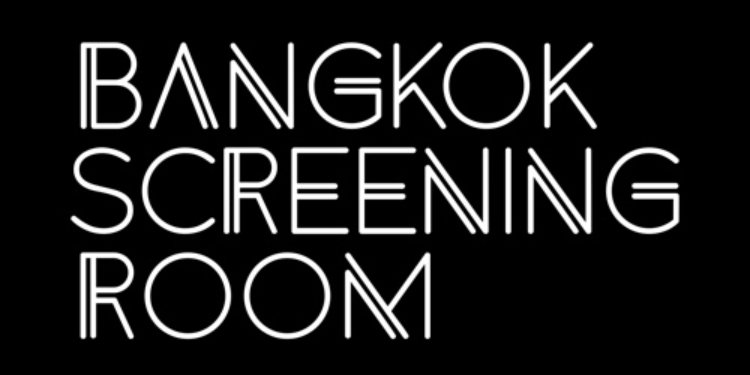
Bangkok Screening Room will be showing Fritz Lang’s masterpiece Metropolis in the first week of 2019. The silent science-fiction epic will be screened on 29th and 30th December this year, and 3rd, 4th, 5th, and 6th January next year. There will also be a retrospective of Martin Scorsese classics in the new year, including GoodFellas on 19th January and Taxi Driver the following day.
20 December 2018
Birth of Golden Snail
Birth of Golden Snail was inspired by the history and myths associated with Krabi's Khao Khanabnam cave, and was intended as a site-specific installation to be projected in 35mm directly onto the cave wall. It presents fragments of the area's past, including its status as a camp for Japanese soldiers during World War II. The twenty-minute film was made in black-and-white, and shot on 16mm.
Chulayarnnon also explored the legacies of specific locations in two previous short films: A Brief History of Memory (ประวัติศาสตร์ขนาดย่อของความทรงจำ) examines UDD violence in Bangkok's Nang Loeng community, and Planking refers to the 6th October 1976 massacre on Thammasat University's football pitch. (He is also one of a quartet of directors responsible for the superb Ten Years Thailand.)
At a preview screening of Birth of Golden Snail on 17th October, the Office of Contemporary Art and Culture (OCAC) raised several objections, claiming that the portrayal of a pregnant schoolgirl set a bad example, and that a shot of her topless was indecent. As Chulayarnnon told me in an interview last week, the OCAC were also concerned that the representation of Japanese soldiers "can make a bad relationship between Thailand and Japan." What's more, a resident of Krabi even posted a death threat on Facebook, accusing the director of disrespecting local culture.
The OCAC asked Chulayarnnon to cut the film, though he declined to do so, as he explained in a Facebook post: "the committee asked me to re-edit and cut some scenes out from the film because they were afraid of negative feedback from local people in Krabi. I understood the comments from the committee but I refused to censor my film". On 1st November, only a day before the Biennale opened, the OCAC wrote to the director confirming that the film could not be shown without cuts.
The OCAC cited the Film and Video Act, § 29, to justify their ban, though the paragraph in question states: "if the Film and Video Censorship Committee considers any film as having content which undermines or is contrary to public order or good morals, or may affect the security and dignity of Thailand, the Film and Video Censorship Committee shall have the power to order an applicant to edit or cut off the scene before granting approval". In other words, the power of movie censorship rests with the Film and Video Censorship Committee (which did not view the film), rather than the OCAC.
After this legally questionable verdict, the film was excluded from the Biennale, and Chulayarnnon's negotiations with the OCAC have since been moving at a snail's pace. As he said in last week's interview, he is defending freedom of expression and setting a precedent: "I use this film as a case study, to understand and question the system. I don't fight for myself, but I fight for the next film, the next project in the future." The Biennale runs until 28th February next year, though it remains to be seen whether Birth of Golden Snail will be aborted or not.
Nang Nak
The screening has been organised as a public relations exercise by the Crown Property Bureau, which owns the land around Sanam Suea Pa. The adjacent Dusit Zoo was closed earlier this year, after the Bureau reclaimed the land it occupied. Also, a plaque commemorating Thailand's democratic revolution was removed from the nearby Royal Plaza last year.
War and Piss
Entries are submitted by Viz readers, and the book was edited by Simon Thorp and Graham Dury. Green's Dictionary of Slang is the definitive slang dictionary, whereas the Profanisaurus has more in common with the online Urban Dictionary, though its neologisms and definitions are funny and inventive.
18 December 2018
Trump's Enemies
When they're not recycling 'deep state' conspiracy theories from Fox News, they lavish unconditional praise on Trump. Even Ronald Kessler's hagiographic The Trump White House occasionally tempered its flattery with minor criticisms, though in Trump's Enemies, Trump is practically perfect in every way. The book is ultimately a propaganda exercise, itemising Trump's 'achievements' in a four-page "copy of a list that the president sometimes reads from when he speaks at rallies and other events."
Kessler's book was a response to Michael Wolff's Fire and Fury, and Trump's Enemies is a similar attempt to challenge Bob Woodward's superb Fear. Just as Kessler claimed that Wolff's book was "riddled with false claims," Lewandowski and Bossie describe the meticulously-sourced Fear as "filled with inaccuracies and lies from disgruntled former staffers."
Trump's Enemies includes a lengthy though obsequious interview with Trump, in which he dismisses Woodward: "Look, I don't think he's a very good writer, personally." (In August, Trump told Woodward that he had always admired him.) The authors boast that their Oval Office encounter is "the only formal book interview President Trump has sat for since being elected to office," though Kessler also spoke to the President, claiming that his conversation was "the only interview for a book that Trump said he has given or will give as president".
17 December 2018
Shakespeare Must Die
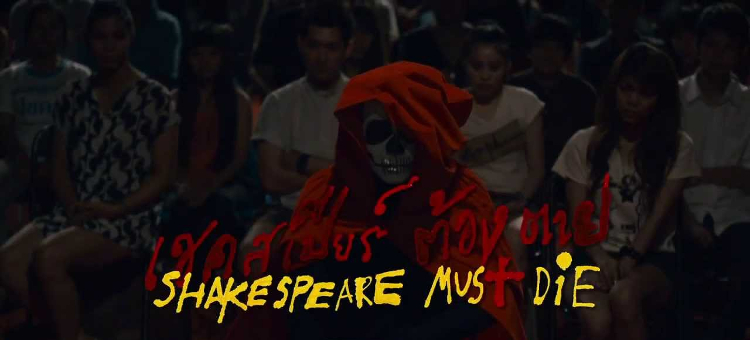
The ban on Ing Kanjanavanit’s film Shakespeare Must Die (เชคสเปียร์ต้องตาย) was banned in 2012. Interviewed about the ban for the forthcoming book Thai Cinema Uncensored, she didn’t mince words, describing the censors as “a bunch of trembling morons with the power of life and death over our films.” The Appeals Court upheld the ban last year. Ing and her producer, Manit Sriwanichpoom, are currently appealing to the Supreme Court, though in the meantime, the film remains in limbo.
While it cannot currently be screened commercially in Thailand, it was shown yesterday at a members-only event at Cinema Oasis, the venue Ing and Manit founded earlier this year. Cinema Oasis is also the only cinema willing and able to show Ing’s Censor Must Die (เซ็นเซอร์ต้องตาย), her documentary about the banning of Shakespeare Must Die.
Shakespeare Must Die is a Thai adaptation of Macbeth, with Pisarn Pattanapeeradej in the lead role. The play is presented in two parallel versions: a theatrical production in period costume, and a contemporary political interpretation. The period version is faithful to Shakespeare’s original, though it occasionally breaks the fourth wall, with cutaways to the audience and an interval outside the theatre (featuring a cameo by the director).
In the political version, Macbeth is reimagined as Mekhdeth (also played by Pisarn), a head of state facing a crisis. Street protesters shout “ok pbai!” (‘get out!’), and the protests are infiltrated by assassins described in the credits as ‘men in black’. Ing denies any direct satire on Thai politics, though “Thaksin ok pbai!” was the People’s Alliance for Democracy’s rallying cry against Thaksin Shinawatra, and ‘men in black’ were blamed for instigating violence in 2010. Another line in the script—“Dear Leader brings happy-ocracy!”—accurately predicts Prayut Chan-o-cha’s propaganda song Returning Happiness to the Thai Kingdom (คืนความสุขให้ประเทศไทย).
The climax, a recreation of the 6th October 1976 massacre, is the film’s most controversial scene, and the main reason for the ban. A photograph by Neal Ulevich, taken during the massacre, shows a vigilante bashing a corpse with a chair, and Shakespeare Must Die restages the incident. A hanging body (symbolising Shakespeare himself) is repeatedly hit with a chair, though rather than dwelling on the violence, Ing cuts to reaction shots of the crowd, which (as in 1976) resembles a baying mob. (Ing previously painted a series of portraits of onlookers from Ulevich’s photograph for the Flashback '76/อดีตหลอน exhibition.)
While it cannot currently be screened commercially in Thailand, it was shown yesterday at a members-only event at Cinema Oasis, the venue Ing and Manit founded earlier this year. Cinema Oasis is also the only cinema willing and able to show Ing’s Censor Must Die (เซ็นเซอร์ต้องตาย), her documentary about the banning of Shakespeare Must Die.
Shakespeare Must Die is a Thai adaptation of Macbeth, with Pisarn Pattanapeeradej in the lead role. The play is presented in two parallel versions: a theatrical production in period costume, and a contemporary political interpretation. The period version is faithful to Shakespeare’s original, though it occasionally breaks the fourth wall, with cutaways to the audience and an interval outside the theatre (featuring a cameo by the director).
In the political version, Macbeth is reimagined as Mekhdeth (also played by Pisarn), a head of state facing a crisis. Street protesters shout “ok pbai!” (‘get out!’), and the protests are infiltrated by assassins described in the credits as ‘men in black’. Ing denies any direct satire on Thai politics, though “Thaksin ok pbai!” was the People’s Alliance for Democracy’s rallying cry against Thaksin Shinawatra, and ‘men in black’ were blamed for instigating violence in 2010. Another line in the script—“Dear Leader brings happy-ocracy!”—accurately predicts Prayut Chan-o-cha’s propaganda song Returning Happiness to the Thai Kingdom (คืนความสุขให้ประเทศไทย).
The climax, a recreation of the 6th October 1976 massacre, is the film’s most controversial scene, and the main reason for the ban. A photograph by Neal Ulevich, taken during the massacre, shows a vigilante bashing a corpse with a chair, and Shakespeare Must Die restages the incident. A hanging body (symbolising Shakespeare himself) is repeatedly hit with a chair, though rather than dwelling on the violence, Ing cuts to reaction shots of the crowd, which (as in 1976) resembles a baying mob. (Ing previously painted a series of portraits of onlookers from Ulevich’s photograph for the Flashback '76/อดีตหลอน exhibition.)
12 December 2018
Ten Years Thailand
The film's first segment, Aditya's black-and-white Sunset, is based on an event that occurred last year. In the film, a group of soldiers inspect an art gallery and order the removal of 'inappropriate' images from a photography exhibition. The film's artist (Sirikanya Thomson) and exhibition (I Laughed so Hard I Cried) are fictional, though in 2017 a group of soldiers demanded the removal of photographs from Harit Srikhao's Whitewash exhibition at Gallery VER in Bangkok. For added verisimilitude, Aditya's restaging of the military's art censorship was filmed at Artist+Run, a gallery adjacent to Gallery VER. As an in-joke, Artist+Run's gallerist Angkrit Ajchariyasophon plays one of the soldiers in the film.
In Wisit's quirky Citizen Dog (หมานคร), city dwellers all grew tails. Catopia, his segment of Ten Years Thailand, is a much darker variant on the theme: almost everyone has (CGI) cat's heads, and the few remaining humans are hunted and killed. The film critiques Thailand's traditional values of social conformity and unity, and also echoes the country's anti-Communist paranoia of the 1970s, when suspected Communists and left-wing students were attacked by militia groups. Yet, despite its political satire, and some full-frontal female nudity in Wisit's segment, Ten Years Thailand was passed uncut by Thailand's censors, and even received a surprisingly lenient '13' rating.
In Chulayarnnon's science-fiction segment, Planetarium, citizens demonstrate loyalty by standing to respect their leader, and those who lie on the ground in protest (as in Chulayarnnon's short film Planking) are detained. The kitsch design elements (neon pyramids, an animated stargate, and pink costumes) are a mask for an authoritarian regime, just as Thailand's repressive junta pledged to 'bring back happiness to the people'. The leader and her minions all wear Scout uniforms, recalling the Village Scout vigilantes that instigated violent attacks on students in 1976. In Chulayarnnon's dystopian vision, the entire country has been taken over by this royalist militia.
Ten Years Thailand begins with a quotation adapted from George Orwell's Nineteen Eighty-Four ("Who controls the past... controls the future"), and Planetarium is the film's most Orwellian segment. Its vision of surveillance and obedience is shared with Thunska Pansittivorakul's Supernatural (เหนือธรรมชาติ), which used the same Orwell quote as its tagline.
Ten Years Thailand concludes with Apichatpong Weerasethakul's Song of the City, in which a man attempts to sell a "Good Sleep Machine" guaranteeing peaceful sleep. Throughout his sales pitch, a statue of military dictator Sarit Thanarat looms over him, indicating the perpetuation of the country's militaristic ideology. Sarit's ominous presence is also felt in Apichatpong's Cemetery of Splendour (รักที่ขอนแก่น), as his portrait hangs on a canteen wall. In that film, which was also made under military rule, soldiers suffer from a mysterious epidemic of sleeping sickness: for Apichatpong, sleep is a metaphor for an oppressive society, and a source of escapism for the oppressed.
